Color Deaf: 8 Years of NYPhil’s Seasons Programming
/On September 21, 2013 former president Barack Obama, in response to the quintessentially American and disturbingly quotidian mass shooting, asked “Do we care enough?” A powerful question when associated to human life. In the land of opportunity, in the “promised-land” that many around the world dream to inhabit and contribute to. Obama was remembering the American lives that were slaughtered by the hands of those same Americans that pulled the trigger and those “Americans” that enabled and encouraged those murders in exchange for financial indulgence and political power.
Today it has come to national attention something far older and more common than mass shootings and gun violence, that being police brutality and murders against black and brown American communities. The intrinsic racism on which America was built has maintained its dehumanization and indifference against the other to such lethal extremes that it has become impossible to ignore.
This incessant American tragedy has moved some of us in different fields to ask ourselves if what we do can, in any way, support the humanization of non-white Americans, humanization that has been stripped from us, or redefined by overt, as well as unconscious white supremacy and privilege. As a composer of classical music, and a composer of color myself, I ponder about this constantly. My catalogue of music has taken a priority towards activism and awareness, I have center my career on trying to fill the abyss that this art form has consciously left empty by denying women and non-white composers opportunities in the name of the falsehood of meritocracy. However, if the major institutions that represent the classical music leadership in our country are not willing to accept their responsibility and take the matters seriously, the horizon of change in this industry will stay just like a mirage.
I was adopted by New York City when I came to pursue my masters and now doctorate in music composition at The Juilliard School. I fell in love with this magical city and I have grown proud of our world class musical institutions. However, the lack of diversity was impossible to ignore. I wondered what were our artistic leaders thinking when they were faced by these issues. Did they felt they could contribute? Did they felt the communities they serve needed some sort of support? What about representation? In fact, using Obama’s words, did they care enough, or at all?
Programming being one of the most powerful tools an orchestra can use to empathize, represent, and contribute to their community, I decided to study the last eight years of programming of the New York Philharmonic. I settled on studying NYPhil’s programming firstly because of its influential power in the classical music environment, its worldwide leadership and acclaim. Secondly, well, because it’s my backyard orchestra.
After going through almost 800 pieces, the result, I must say, was not surprising, although no less hurtful. The countries represented the most were Germany, Austria, Russia, and the U.S.A. When I added all the data from the eight years of programming, only 1.5% of the entire sum were a combination of Black (and African-American), Latinx, Asian (and Asian-American), and other non-white composers. The remaining 98.5% were white European or white American composers. Although the non-white representation totaled 1.5%, there were 2 seasons, 2015/16 and 2017/18 (Jaap van Sweden’s first season) that did not have any non-white representation. As I mentioned, though I was not surprised at all, I still was disturbed by the findings, more so because the NYPhil serves New York City, and, based on the US Census website, NYC is only 46.9% white. This means more than half of the population of the city is not being represented in their programming.
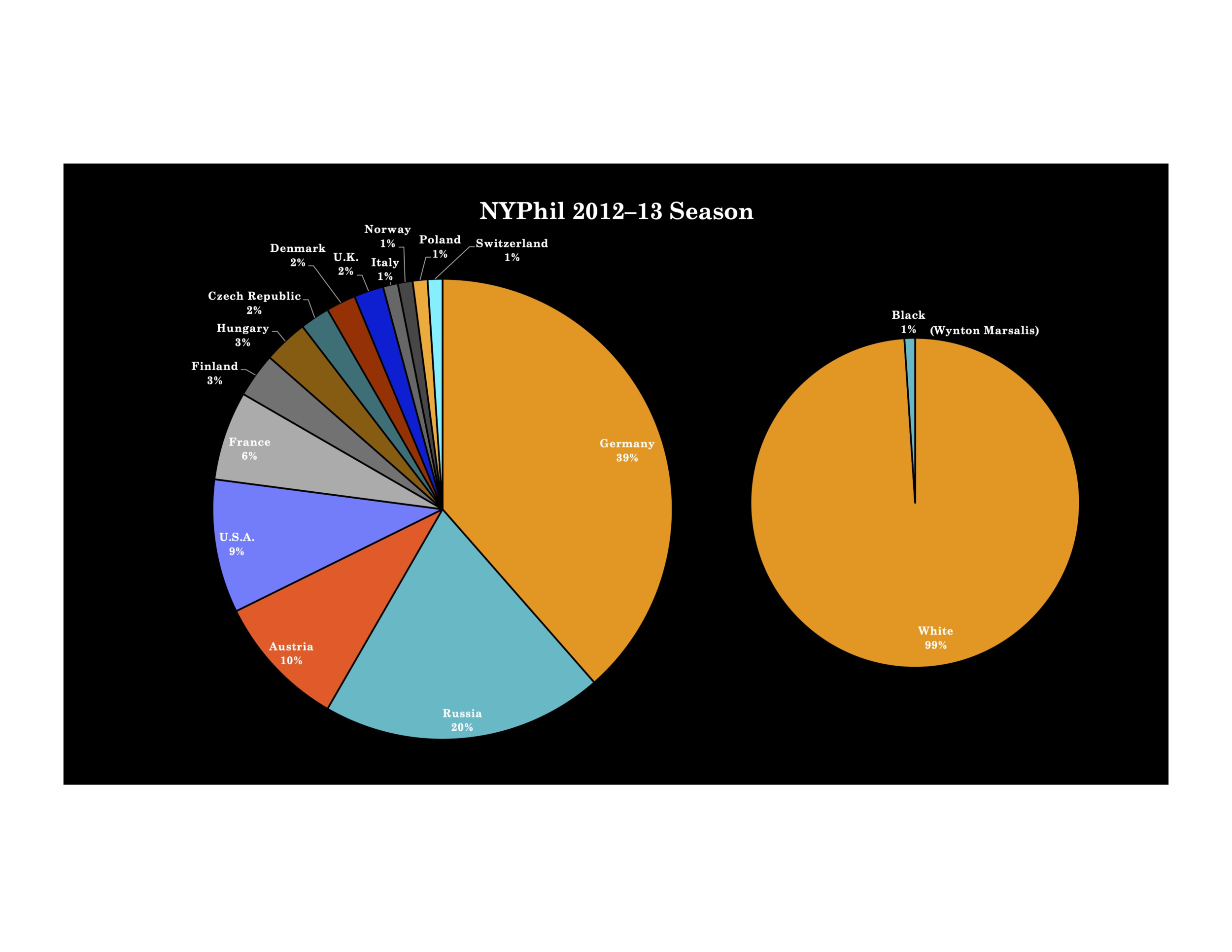
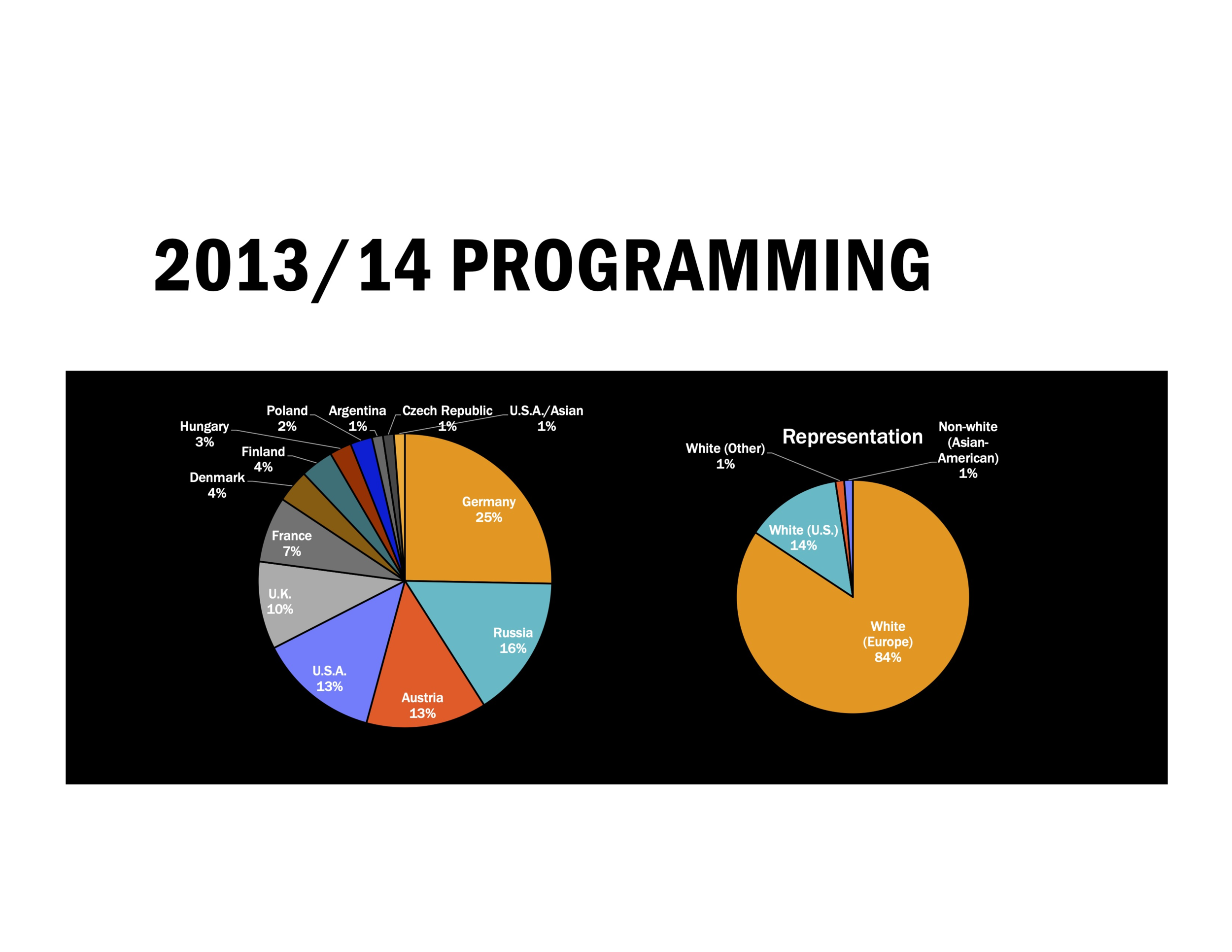
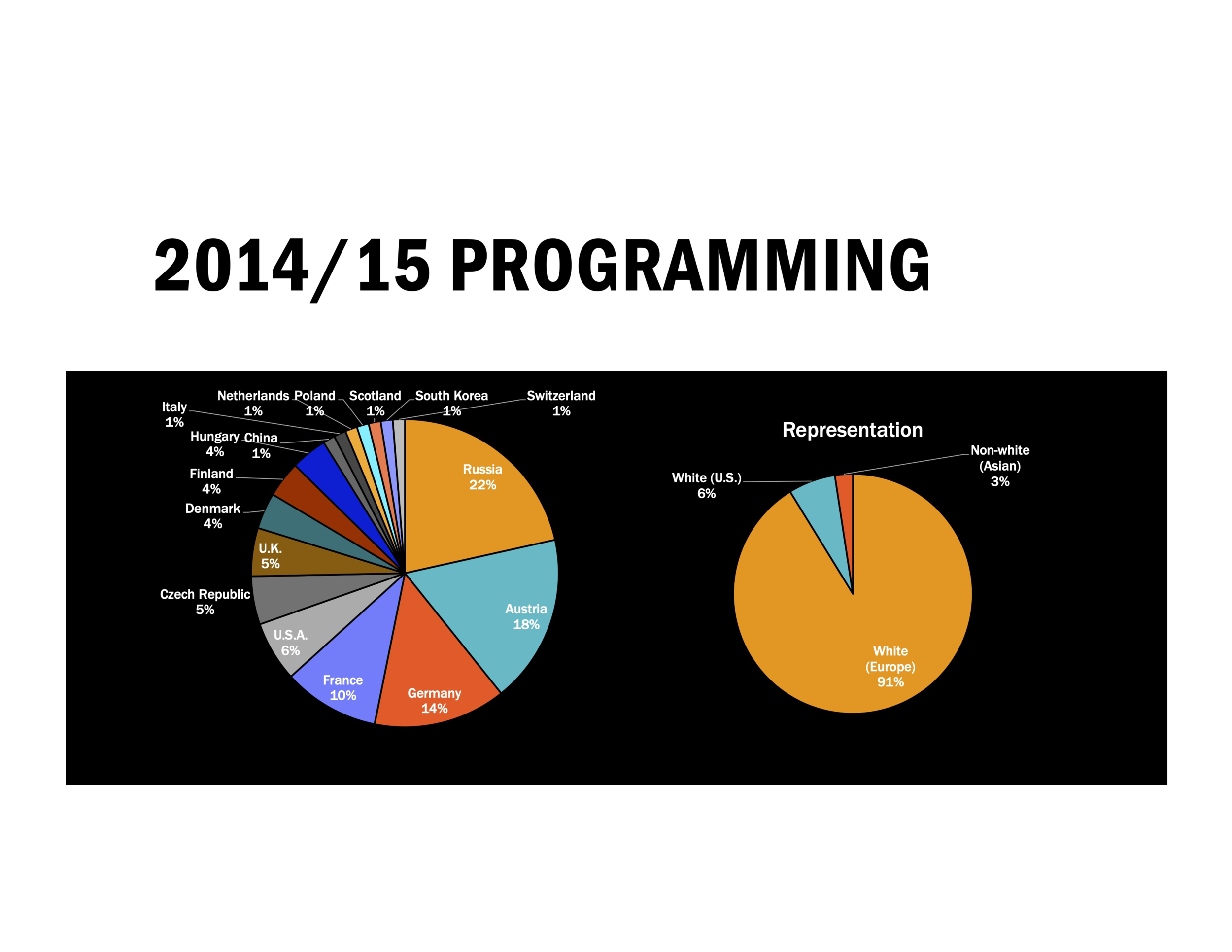
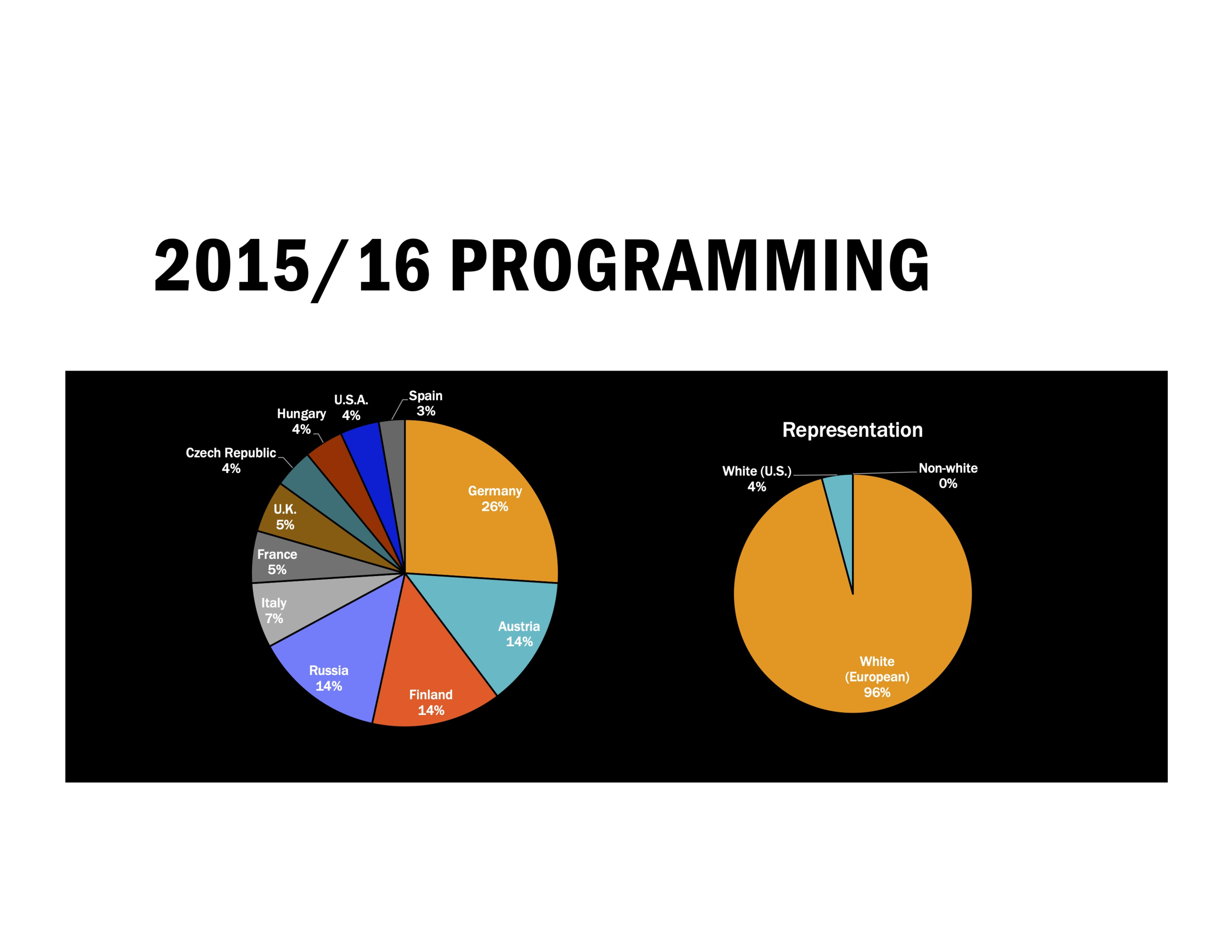
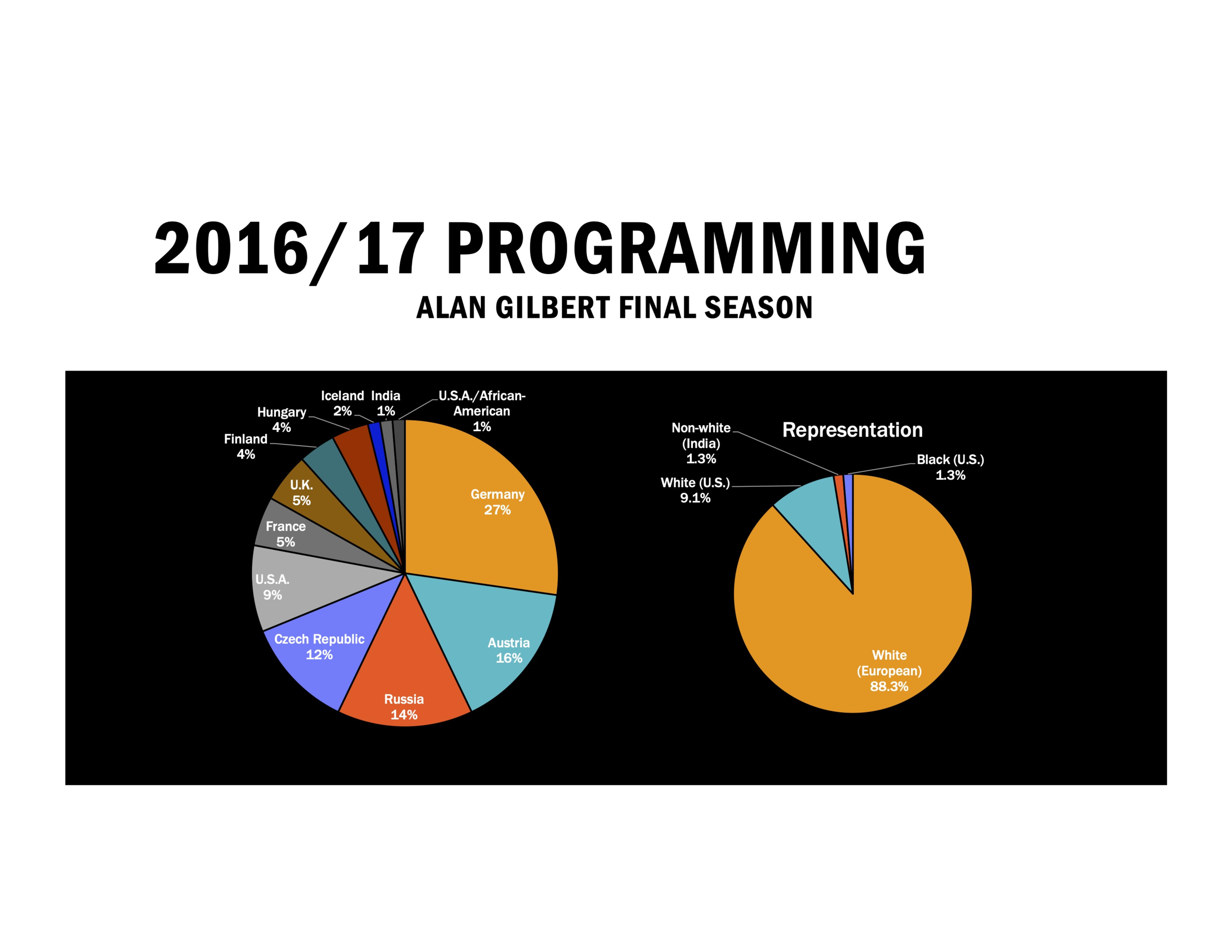
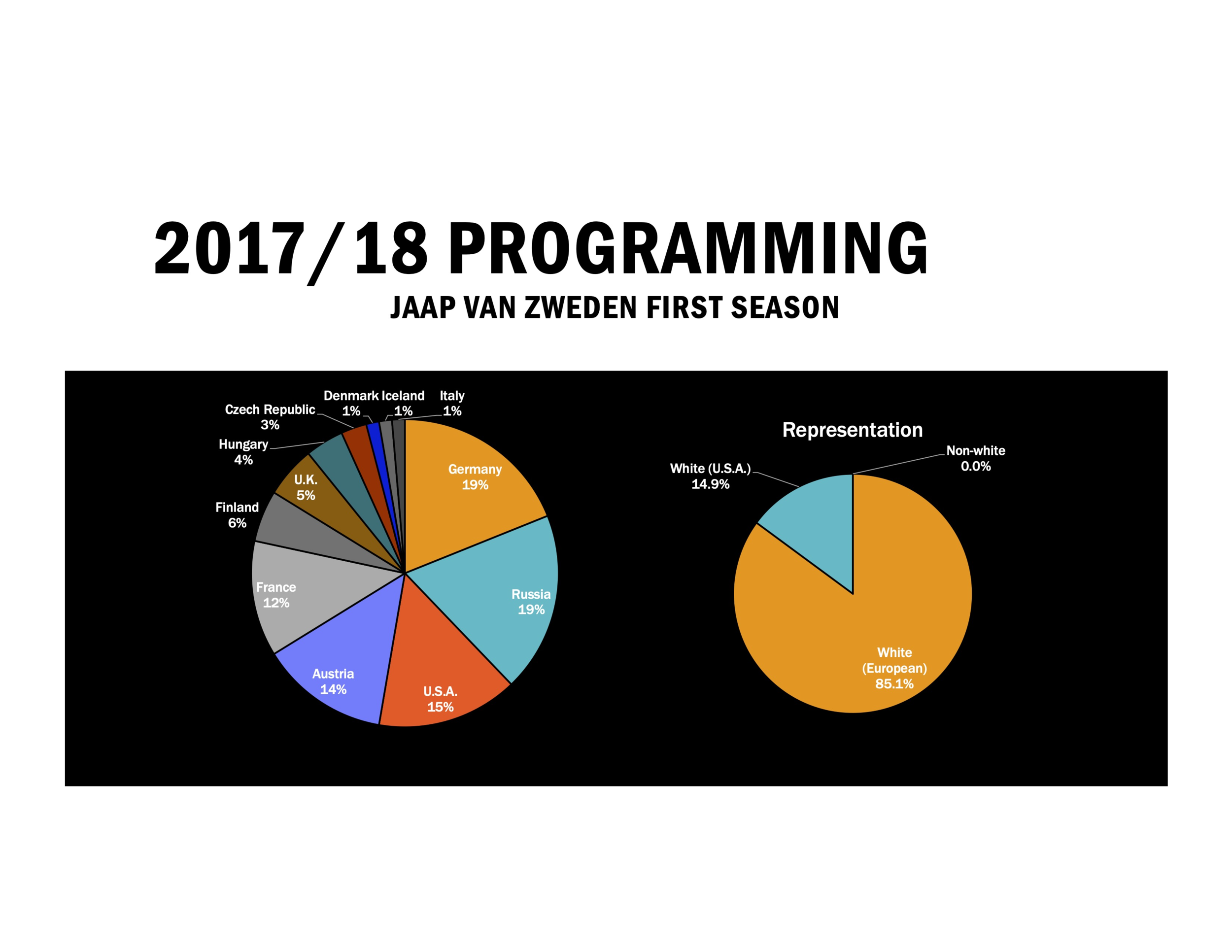
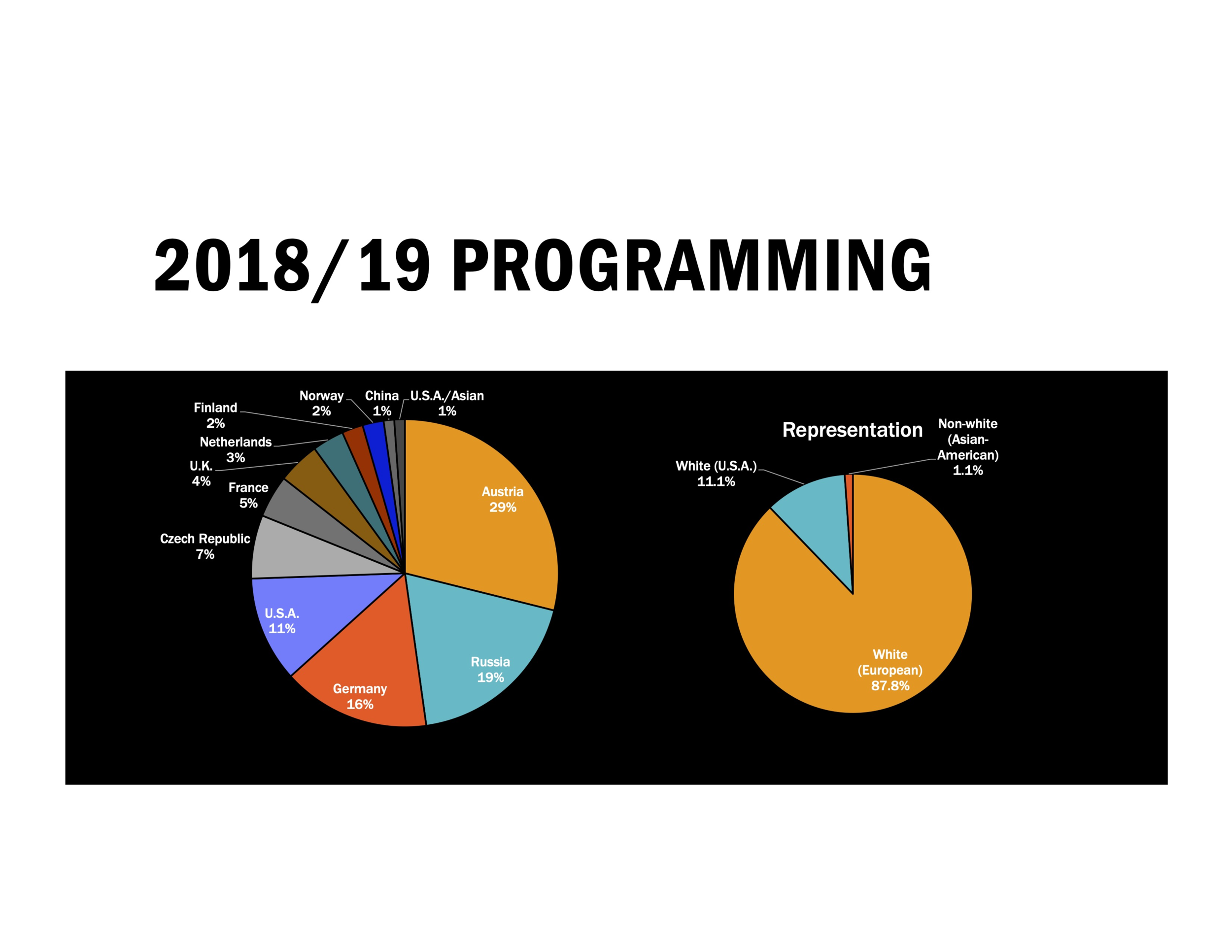
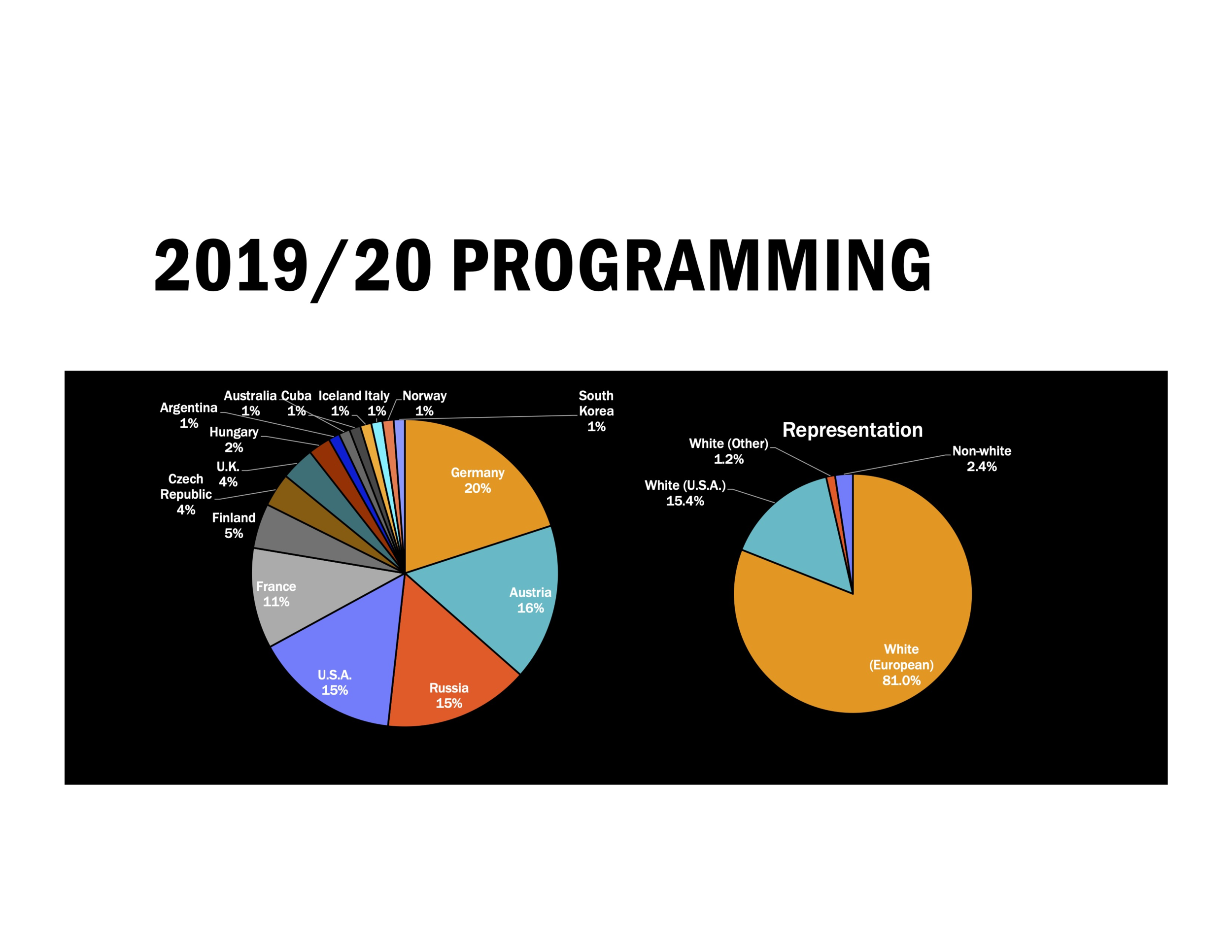
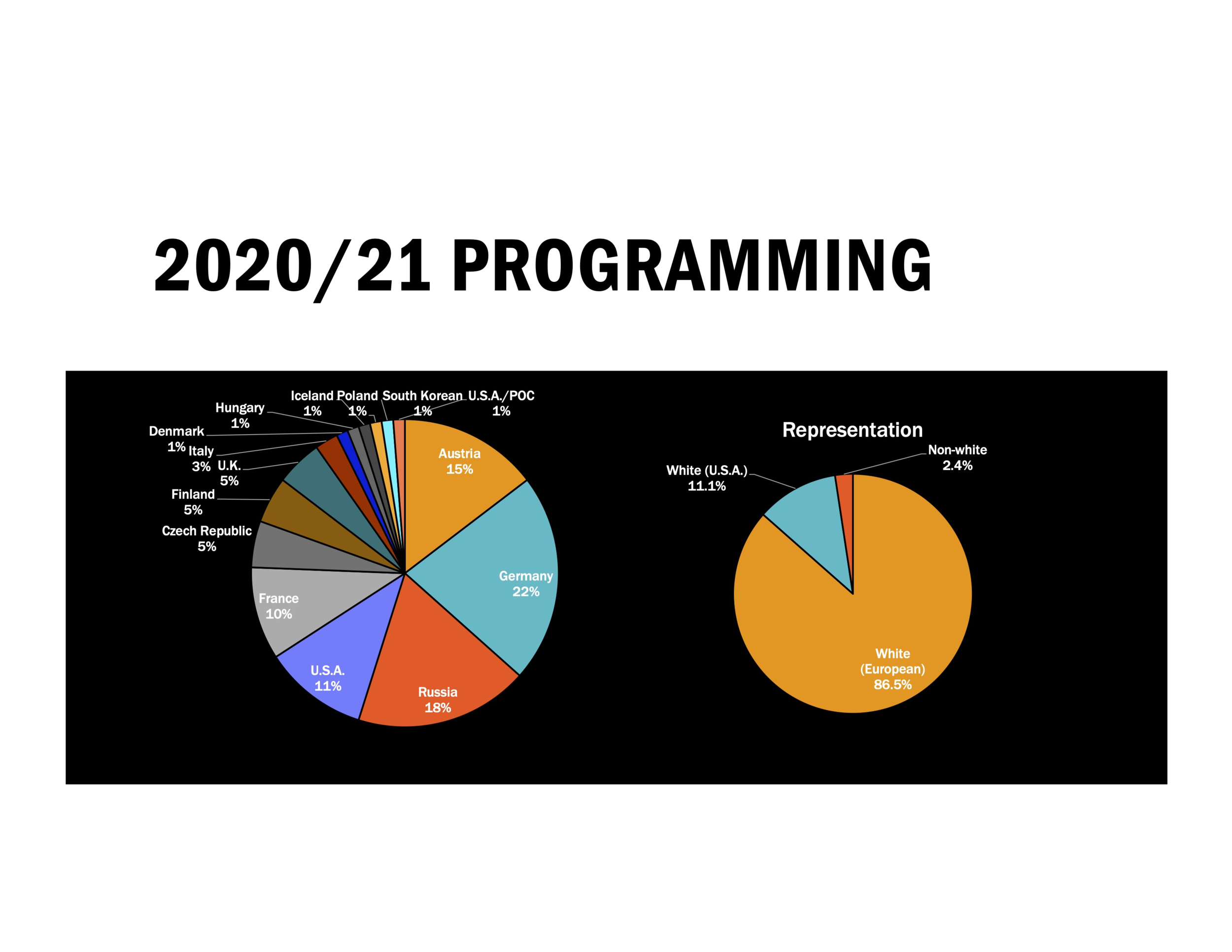
Classical music had Europe as birthplace, hence the majority of the repertoire that we have today will come from Europe. Nonetheless, 98.5% white Europe and white America against 1.5% everyone else seems rather unbalanced. There is also the constantly used argument of “merit” to justify the lack of diversity: “We are constantly searching for diverse repertoire and programming. However, we only look at quality. We want to present the best music to our community.” This argument is a fallacy and it’s beautifully addressed by Dr. Philip Ewell in his study Music Theory and the White Racial Frame. When non-white candidates are considered to, in this case, be programmed and “merit” is invoked this “makes the person feel righteous for seeming open minded and interested in racial diversity, yet it maintains the status quo.” Maintaining the status quo is dangerous as the measurement orchestras use to decide “quality” benefits white composers, or, bluntly put, it’s a white supremacists measurement. As a result this produces a sense of worthlessness in non-white artists as our vulnerability in our contributions is judged by a measurement which will never see us fairly.
Let’s not confuse this matter. Oftentimes when white people hear these statements they tend to feel attacked and judged. It is important to comprehend that this is not the case. There is no ad hominem attack. It is just a recognition of how the system is inherently set to benefit white people. Part of the problem of white supremacy and privilege is precisely the unawareness of having or employing it. The fact that the system has been like this from as long as we can remember, any demand for equality, in the eyes of white people, looks like a lessening of their opportunities. We just need to look at the numbers again, 98.5% white Europe and white America against 1.5% everyone else. Opening up to more equal representation would not even come near to eliminating any white composer’s opportunity. It would only make non-white composer’s journey as fair as theirs, as painless as theirs.
If I’ve learned anything from this study is that we have so much work to be done. That there is a reckoning that needs to happen in our classical music world and in America as a whole. How come in this past eight years we’ve seen the murders of Kimani Gray, Andy Lopez, Alex Nieto, Trayvon Martin, Eric Gardner, Michael Brown, George Floyd, Marvin D. Scott, Kurt Reinhold, McHale Rose, Breonna Taylor, Delaina Ashley Yaun, Paul Andre Michels, Xiaojie Tan, Daoyou Feng, and as of recent, Daunte Wright and Adam Toledo (which was only 13 years old), just to mention a few from the obscene amount that have lost their lives; and one of our most prominent musical institutions has not even showed solidarity with their most impactful tool, programming?
I just hope this doesn’t reflect the New York Philharmonic’s values and that this doesn’t take a turn to become a shallow publicity stunt. That the matter is taken seriously enough to se an absolutely equitable season from now on. In fact, it’s not that hard and it is definitely not because of a lack of repertoire. It just takes determination, strength of character, and a good moral compass. There are universes of music out there to be explored and a wealth of composers from diverse backgrounds eager to share a bit of ourselves with all of you. We just need you to take us as seriously and to treat us with the respect that you give all the others that remind you of what you see in the mirror every morning.
